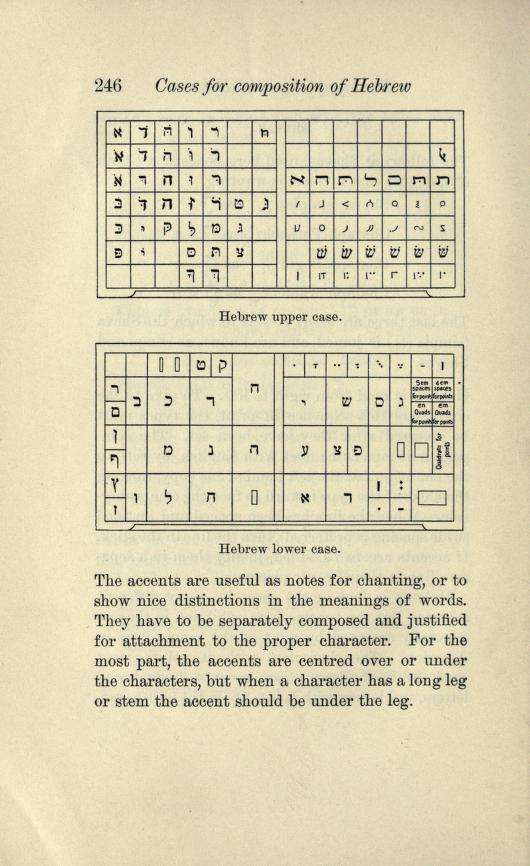
Here's one from 1841:
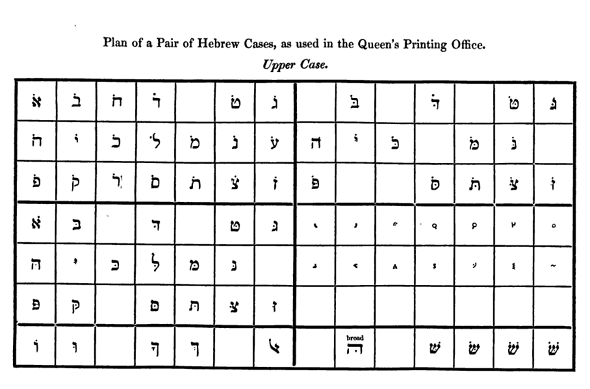
1839:
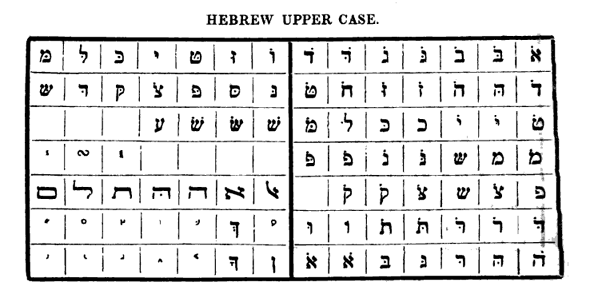
Finally, sometimes I save the most interesting stuff for last for those who are still reading.
Here's an attempt to explain a strange character in a Palmyrene inscription in this book by analogy with abbreviations in rabbinical writing (using interesting typographical characters):
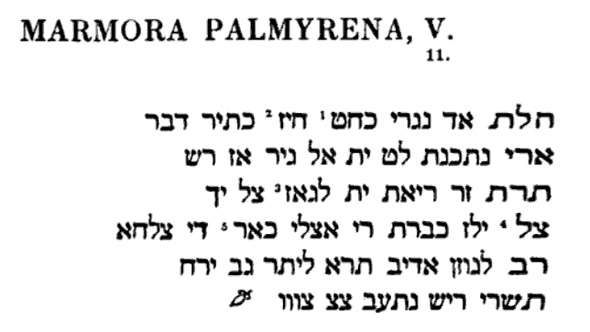
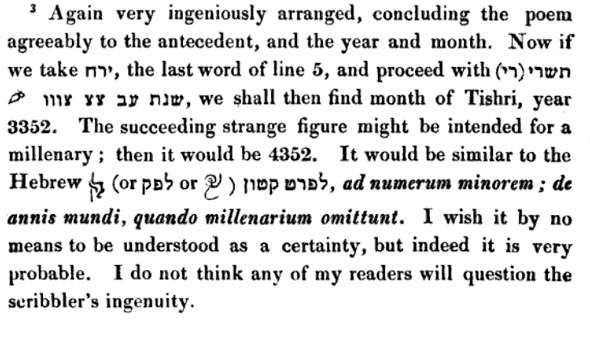
Here is S. Salome, the author's, pretentious yet touching finish to that book:
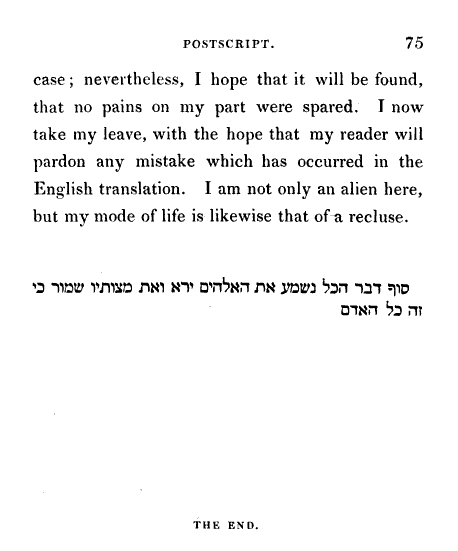
This is from the book Narrative of a journey from Constantinople to England (1828):
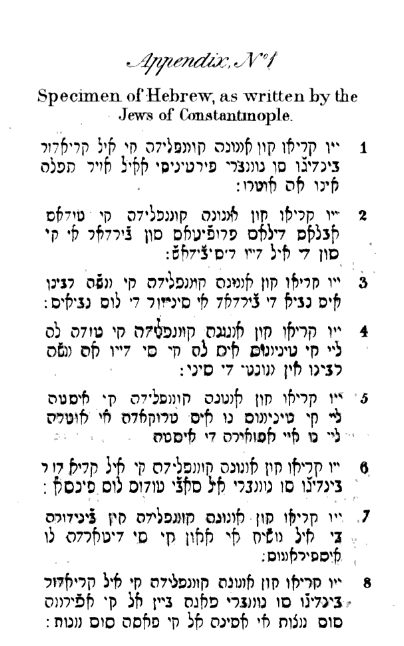
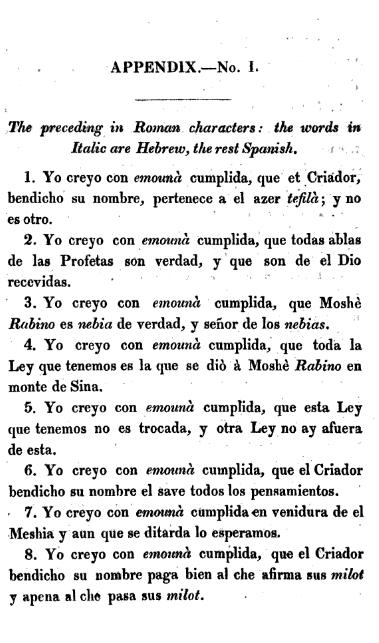
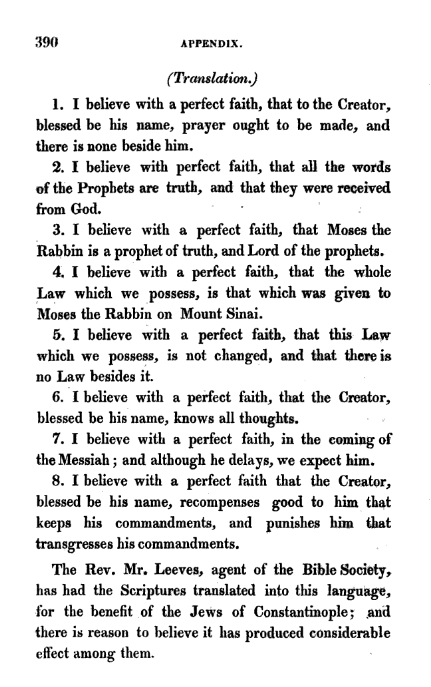

It's interesting that the Ikkarim pertaining to the nature of God (i.e. his unity, his preexistence) have been left out. I always thought they were sort of redundant nowadays.
ReplyDeleteWait a second! where is Techiyat Hametim! Oy vey!
Interesting, huh? I have no idea where this guy got it; if he copied it exactly, edited it himself.
ReplyDelete#1 in the Ladino ("Rashi" script) reads "...Y no a otro" =and it is not appropriate to pray to an other. The "Roman characters" version and the translation get it wrong.
ReplyDeleteThank you. I have a hunch that it is deliberately wrong.
ReplyDeleteOf course "milot" is a misreading for "mitzvot" (the tzadi does look like a lamed), but somehow the translation came out right.
ReplyDelete